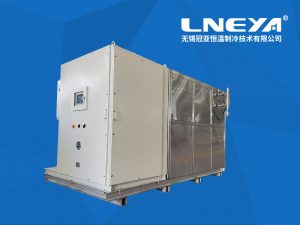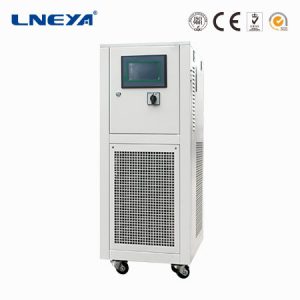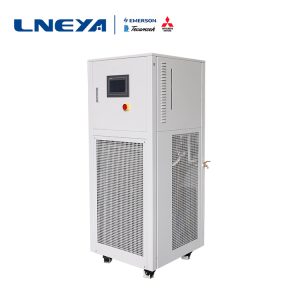What is the difference between glycol chillers and water-cooled chillers?
Both glycol chillers and chillers can be used to satisfactorily dissipate the heat generated during production. The fundamental difference between the two types of chillers is the variation in their freezing point and heat transfer capabilities.
Pure ethylene glycol or a mixture of ethylene glycol and water has a much lower freezing point than pure water. This means that glycol-based chillers are better suited for low-temperature environments. In contrast, water has a better ability to retain and conduct heat in the associated process than glycol mixtures. As a result, the heat transfer efficiency for water chillers will be higher than for glycol chillers.
Water: Using water as a coolant is an economical method as water is readily available at minimal cost in most cases. Alternatively, purified water (deionized water, reverse osmosis) can be used in water-based chillers for greater cooling efficiency.
Ethylene Glycol: Ethylene glycol-based coolants consist of either ethylene glycol or propylene glycol. Although the two variants have similar physical properties, they should never be mixed. The main benefits of glycol coolants are improved corrosion resistance and freeze protection.
Why use ethylene glycol for cooling?
Using a glycol-water mixture as a coolant has several advantages over using plain water as a coolant. These advantages are due to its unique physical properties, which include a lower freezing point than water.
Verwandte Empfehlungen
-
Low temperature refrigeration unit maintenance inspection
1698Low-temperature refrigeration units usually need to do a maintenance. After the maintenance is done, it is not easy to fail, and there will be more markets. If it is not easy to fail, it will not stop working, which is equivalent to saving the com...
Details anzeigen -
Classification and advantages and disadvantages of commonly used chillers
1801What are the classification and advantages and disadvantages of chillers? Let us take a look together today. 1. Various classification methods of chillers1. According to condenser cooling method: water-cooled chiller and group air-cooled water ch...
Details anzeigen -
What are the causes of the blockage of the cooler?
1488The LNEYA Chiller Cooler HRT whole system is a closed liquid circulation system with the expansion of container, expansion of the container and the liquid circulation is adiabatic, and do not participate in liquid circulation, only mechanical conn...
Details anzeigen -
Usage Details of High and Low Temperature Environmental Chambers
1702The enterprise users must have a certain understanding of the functions of the high and low-temperature environmental chamber after using them for a long time, but something detail of the high and low-temperature environmental chamber may still no...
Details anzeigen
 LNEYA Industriekühler Hersteller Lieferant
LNEYA Industriekühler Hersteller Lieferant













